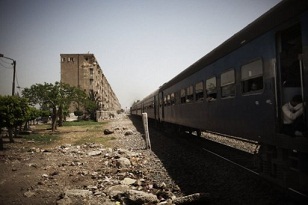New York: In rhetoric, and increasingly in action, US President Barack Obama s administration is ushering in a willingness to engage the other – the missing link in US statecraft. From Syria to elements of the Taliban, the Obama administration has sought discourse and engagement, not marginalization and exclusion.
The administration has the resources to implement its vision, including new funding from Congress, the backing of the American public, and the support it has received from across the world.
However, there is one resource at its disposal that has been largely overlooked, to our collective detriment: religious peacemakers.
These are local clergy and lay people for whom religion is a source of motivation and a practical resource for peacemaking, peace-building and conflict resolution. Forward-looking, multi-dimensional smart diplomacy must support Track II (citizen) efforts and consider these individuals potential allies.
Religious peacemakers are already on the ground in Iraq, Afghanistan, Nigeria, Pakistan and other conflict zones, working to stop violence and build sustainable peace. Because of their local knowledge, community membership and long-term commitment, their advice can make all the difference when responding to some of today s seemingly intractable conflicts.
A few examples make the case.
Take Canon Andrew White, a Christian clergyman based in Baghdad since 1998. Understanding the influence of religion within Iraqi society, he has built extensive relationships with members of every religion and sect, including those who are perpetuating violence and chaos. White knows that where religion is part of the problem, it must be part of the solution. His work in the region, from the 2004 Baghdad Religious Accords to the 2008 joint Sunni-Shia fatwa (a religious edict) against violence, demonstrates that when religious peacemakers engage other religious actors it opens new paths to peace .
From Nigeria, meet Imam Muhammad Ashafa and Pastor James Wuye. As religious leaders, they have authority, followers and trust. They have negotiated lasting peace agreements, including the end to the 1992 Zango Kataf ethnic-religious crisis in Kaduna State, when riots broke out between Christians and Muslims. Moreover, they sustain relationships with locals to prevent renewed conflict through, for example, television and radio ads that reinforce themes of respect. Through their Interfaith Mediation Center, they train women, youth, pastors and imams to work side by side as mediators, quoting each other s sacred texts in pursuit of reconciliation.
Throughout Pakistan, Azhar Hussain has trained thousands of Pakistani and Afghan madrassa (religious school) administrators and teachers in human rights and conflict resolution. These local leaders have, in turn, taken enormous risks: negotiating the freedom of Korean Christian hostages in 2007, holding interfaith workshops with Pakistani Christians leaders, and convincing Taliban members to play a positive role in peacemaking. Some Taliban members have gone on to conduct their own training workshops on peace, reconciliation, and how Islam must be a force for peace.
For many years, various forces have attempted to use madrassas for their own purposes, often for violent or political ends. As Hussain s work illustrates, genuine, respectful engagement with educators in madrassas – historic and sacred Islamic institutions – and a willingness to see their leaders as potential allies can profoundly change the dynamic at the grassroots and in Muslim-Western relations.
Obama and Hillary Clinton, the US secretary of state, say they are prepared to re-engage vigorously in the Middle East. But re-engagement in this region, as in South Asia and elsewhere, can yield results only if all actors are present at the negotiating table. Such inclusiveness will lay the foundation for real, lasting change.
These four religious peacemakers – and countless others like them – will continue their work, whether the Obama administration calls on them or not. But the new administration s oratory offers hope and an opportunity for broader impact, if US policy is reformed to take into account the religious dimension of international relations and conflict resolution. It all depends on what smart diplomacy really means for the United States.
In the words of the 19th century French political thinker Alexis de Tocqueville, The greatest obstacles are less in the country than in ourselves. Let us change our methods and we will change our fortune.
Joyce S. Dubenskyis executive vice president of the Tanenbaum Center for Interreligious Understanding (www.tandenbaum.org). This article was written for the Common Ground News Service (CGNews).

